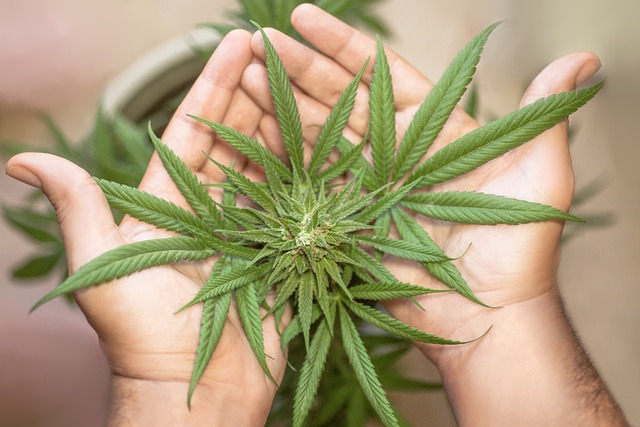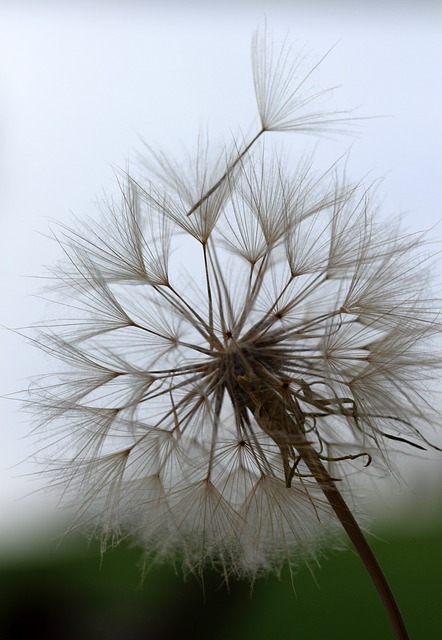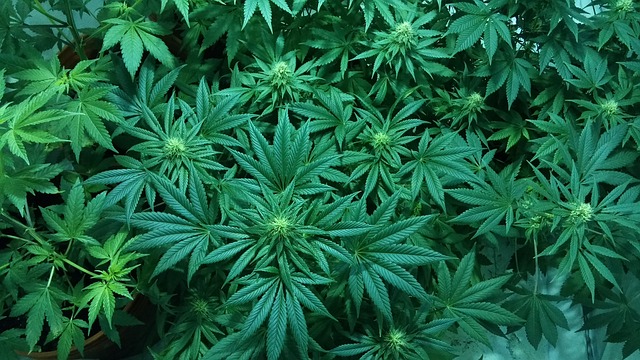The section discusses the therapeutic benefits of THCA (Tetrahydrocannabinolic Acid), a non-psychoactive cannabinoid found in cannabis plants. Lab reports for THCA flower are crucial as they provide accurate information on its composition, including precise THCA content, ensuring consumers can make knowledgeable decisions based on the product's quality and safety. These reports also detail the presence of other cannabinoids, terpenes, and potential contaminants. The growing interest in THCA's health benefits, such as its anti-inflammatory, anti-nausea, and neuroprotective properties, has led to the development of strains with higher THCA levels by cultivators. Consumers are advised to rely on lab reports to harness THCA's potential therapeutic effects without the psychoactive impact that comes from converting THCA to THC through heat. These reports not only protect consumer health but also promote transparency and accountability within the industry. In essence, THCA flower lab reports are essential tools for users, researchers, and manufacturers, offering a detailed chemical analysis that informs both medical and recreational use and guides future scientific exploration in cannabis research.
Exploring the nuanced effects of THCA flower, an emerging player in the cannabis realm, this article delves into its scientific profile and potential side effects. As interest in cannabinoid-based therapies grows, understanding the impact of THCA flower on human physiology becomes increasingly important. We will navigate through lab reports to elucidate the science behind this compound, assess its safety profiles, and discuss dosage considerations that influence its effects. From common side effects to long-term usage implications, this comprehensive overview incorporates expert medical perspectives and explores how individual differences play a role. Additionally, we will address legal aspects and provide guidance on sourcing reliable THCA flower with lab reports. This article aims to shed light on the current state of knowledge regarding THCA flower side effects, while also highlighting key areas for future research.
- Understanding THCA Flower and Its Significance in Cannabis
- The Science Behind THCA Flower Lab Reports: What They Reveal
Understanding THCA Flower and Its Significance in Cannabis

THCA, or Tetrahydrocannabinolic Acid, is a naturally occurring compound found in the cannabis plant that has garnered significant attention due to its potential therapeutic properties. Unlike its well-known derivative THC, THCA is non-psychoactive, offering a range of benefits without the intoxicating effects. Lab reports on THCA flower are crucial for understanding its composition, potency, and safety, providing consumers with reliable data to make informed decisions about its use. These lab analyses ensure that the product meets quality standards and accurately reflects the advertised levels of THCA and other cannabinoids, terpenes, and contaminants.
The significance of THCA flower within the broader cannabis landscape lies in its versatile applications. Research suggests that THCA may have anti-inflammatory, anti-nausea, anti-anxiety, and neuroprotective properties. Given this potential, the demand for THCA-rich products has grown, prompting more cultivators to focus on breeding strains with higher THCA concentrations. Consistent access to comprehensive lab reports is essential for users who seek the therapeutic benefits of THCA without the psychoactive high associated with its decarboxylated form, THC. These reports not only safeguard consumer health but also drive the industry towards greater transparency and accountability.
The Science Behind THCA Flower Lab Reports: What They Reveal

Lab reports on THCA (Tetrahydrocannabinolic Acid) flower provide a comprehensive analysis of its chemical composition and potential effects, offering valuable insights into the cannabinoid’s properties. These reports, which are based on scientific methodology and rigorous testing procedures, confirm that THCA is non-psychoactive but possesses a range of therapeutic qualities. Analytical methods such as gas chromatography and mass spectrometry are employed to accurately quantify the levels of THCA within the flower, ensuring precise measurements. The results from these lab reports are instrumental in understanding the cannabinoid’s interaction with the body’s endocannabinoid system, shedding light on its potential benefits, which include anti-inflammatory, anti-nausea, and analgesic properties. These findings are crucial for both medical and recreational users seeking to make informed decisions about the use of THCA flower. The data collected from these reports also contribute to the ongoing research into cannabinoids’ effects, guiding future clinical studies and product development in the cannabis industry.
In reviewing the available thcA flower lab reports, it’s evident that this cannabinoid presents a range of potential effects and applications. The comprehensive analysis of thcA flower underscores its significance within the broader spectrum of cannabis compounds. While further studies are warranted to fully elucidate its effects, the current findings suggest that thcA could play a promising role in various health and wellness routines, as well as in research on the medicinal properties of cannabinoids. As such, the exploration into the benefits and side effects of thcA flower represents a valuable contribution to the scientific understanding of cannabis and its constituents.
